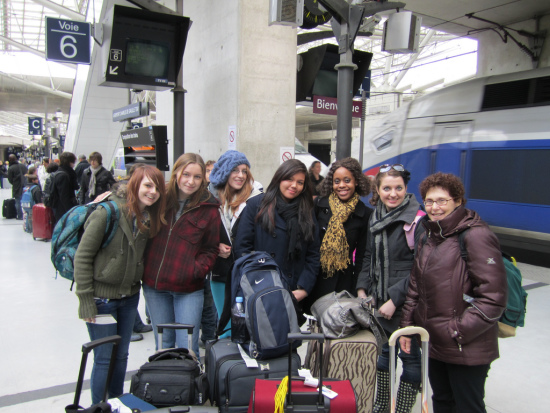A university education is much more than simply studying for a degree. The experience may be a tough one, with discipline at its very heart, but it should never feel repressive or draconian. The good university encourages and nurtures freedom of thought and expression, shaping minds capable of razor-sharp analysis and rational interpretation. But it should also produce well-rounded human beings with useful social skills and an understanding and appreciation of cultural values.

It’s not difficult to understand why the Middle East is a favoured hunting ground not only for millions of fun-loving, sun-seeking tourists, but also for students from across the world. This richly diverse region is a heady mix of warm blue Mediterranean or Persian Gulf waters and Riviera-styled resorts, where man-made islands and five-star hotels jostle seamlessly with 21st century shopping malls and ancient Arab souks.
Full circle
Indeed, the foundations of much of modern science, technology and learning have deep roots within the region’s many ancient but long-gone civilisations. Now, in a sense, everything has come full circle. Thus it seems fitting students enrolled across the full range of undergraduate programs are as likely to plump for universities such as the American University of Sharjah (AUS) in the United Arab Emirates as they are for the University of Phoenix in the United States. Of course, much of this has to do with the high standard of university education within this oil-rich region. But it’s also an indication of how internationalised the whole sector has become.
However, although study abroad is growing in popularity across the world, with the United States the top destination of choice for students from all corners of the globe, not enough Americans are prepared to study overseas, says the IIE, the Institute of International Education.
The good news is, according to IIE data, the number has doubled over the past 15 years but the latest figure of 289,408 for the academic year 2012/13 still represents less than 10% of the US student body. Perhaps unsurprisingly, the most popular destination chosen by US students was the United Kingdom (12.5%), followed by Italy (10.3%), Spain (9.1%), France (5.9%) and China (5%).
International experience
The IIE hopes to improve this with its Generation Study Abroad campaign, a five-year, $2 million initiative which aims to double the number of Americans studying abroad by the end of the decade. Since its launch some eight months ago, the campaign has attracted support from 298 American universities and colleges across 48 states, 67 international universities and organisations, 16 education associations, and various organisations including both national and foreign government entities.
The IIE, regarded as a world leader in the exchange of people and ideas, passionately believes studying abroad is one of the best ways American college students can acquire the international experience necessary to succeed in today’s global marketplace.
Essential component
Allan E. Goodman, president and CEO of the IIE, says, “Studying abroad must be viewed as an essential component of a college degree and critical to preparing future leaders. Globalization has changed the way the world works, and employers are increasingly looking for workers who have international skills and expertise.” Check out more about the Generation Study Abroad campaign here.


